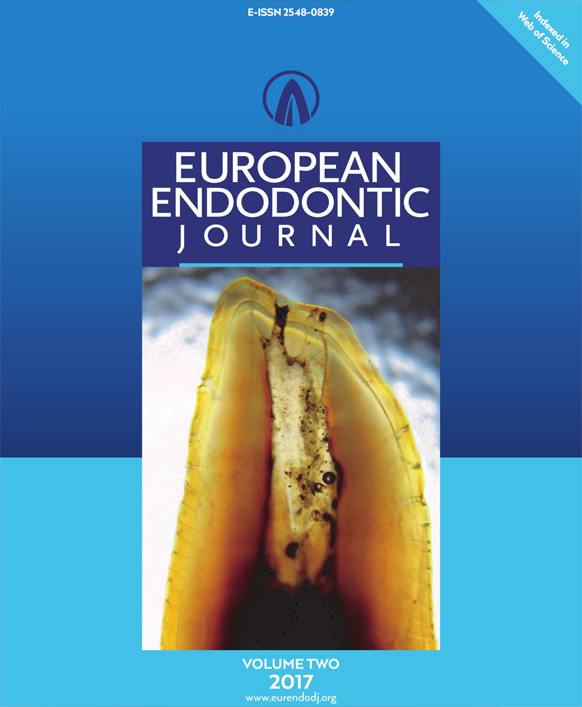
European Endodontic Journal
Yazarlar: Hugo Gaêta-Araujo, Eduarda Nascimento, Danieli Brasil, Amanda Farias Gomes, Deborah Freitas, Christiano Oliveira-Santo
Konular:-
DOI:10.14744/eej.2019.46036
Anahtar Kelimeler: Digital radiography,Dental,Diagnostic imaging,Endodontic diagnosis,Imaging,Periapical lesions
Özet: To assess the detection of simulated periapical lesions in digital intraoral radiography with different levels of brightness and contrast combinations, and to investigate the observers’ preference of image quality for this diagnostic task. Methods: Digital radiographs were acquired prior to periapical lesion simulation and after each one of four defects enlargement. Original images were adjusted in 4 brightness and contrast combinations. Five observers evaluated the images according to the presence of periapical lesion on a 5-point scale. In a second moment, the observers ordinated the images subjectively, according to quality, from the best to the worst to detect the bone defect. The area under the receiver operating characteristic curve was calculated for the diagnostic values and compared by two-way ANOVA. The significance level was set at 5% (P<0.05). Results: No differences were found between the diagnostic values of the five combinations of brightness and contrast (P>0.05). The overall results showed low values of area under the Receiver Operating Characteristic (ROC) curve and sensitivity of the periapical radiography in the detection of periapical lesions of sizes from 1 to 3, which rose substantially in size 4. For image quality, combinations with the lowest brightness and highest contrast were preferred by the observers in 58% of the cases. Conclusion: Brightness and contrast adjustments do not influence the detection of simulated periapical lesions in digital intraoral radiography. Lower brightness and higher contrast images were preferred for this diagnostic task.